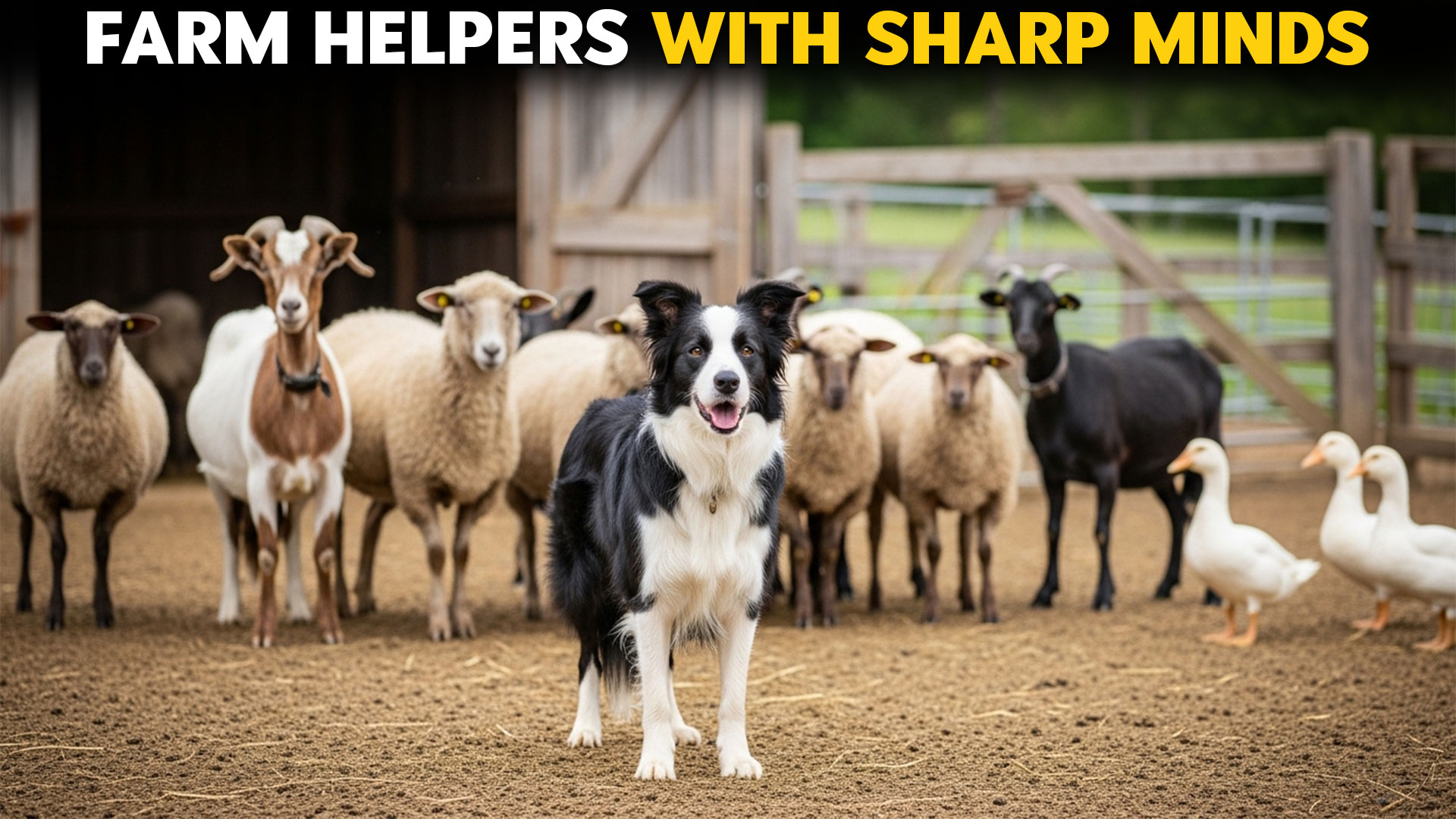Did you know that most of the professional dog trainers agree that consistency is the single most important factor in effective training? When managing livestock, this type of reliability can make the difference between chaos and calm.
Farm life demands dogs that are not just obedient, but also adaptable, alert, and able to think through unexpected challenges. Animals wander, weather shifts, predators prowl—good instincts plus training go hand-in-paw.
Recent studies of canine intelligence reveal that breeds with high working-and-obedience intelligence also tend to excel in instinctive tasks like herding or guarding. This means the right breed can anticipate needs rather than just follow orders.
In this guide, we explore seven dog breeds renowned for being easy to train and reliably competent in farm roles. Expect insight into how temperament, energy level, and learning speed combine to make some dogs especially suited to working with farm animals.
By the end, you’ll understand not just which breeds make great farm companions, but why they perform so well—and what it takes to train them effectively on agricultural land.
Dog Breeds For Farm Animals That Are Easy To Train
1. Border Collie
The Border Collie is widely recognized as the gold standard of herding dogs. Originating from the Anglo-Scottish border region, this breed was developed specifically for managing sheep across rugged landscapes. Their heritage makes them highly adaptable to cooler climates where stamina and sharp instincts are essential.
On farms, Border Collies excel with sheep and goats, using their trademark “eye” to control and move flocks with remarkable precision. They thrive in open fields and hilly terrains, making them a reliable choice for farmers managing large herds. Their natural ability to anticipate animal movement sets them apart from most working dogs.
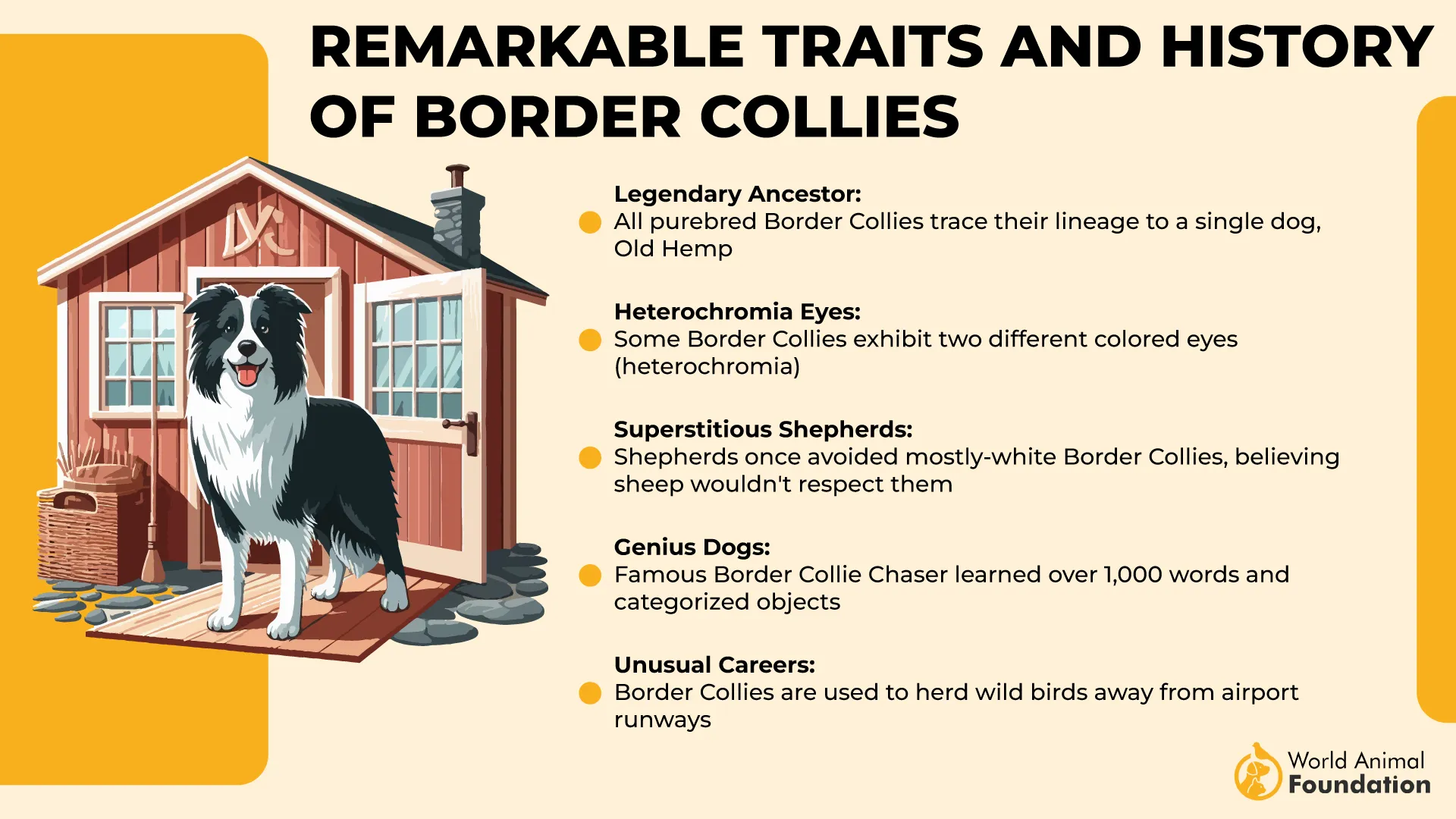
Training a Border Collie requires consistency, structure, and mental stimulation. They respond best to positive reinforcement, problem-solving exercises, and advanced herding drills. Without sufficient mental and physical work, these intelligent dogs can become restless.
For farm life, the Border Collie remains a top-ranked breed because of its trainability, intelligence, and unmatched livestock-handling skills.
Owners Insight
Grooming: Heavy shedding during spring; brush 3-4 times/week.
Diet: Needs high-quality protein; avoid obesity from overfeeding.
Warning: Boredom causes destructive herding behavior or excessive barking.
2. Australian Shepherd
Although called the Australian Shepherd, this breed was actually developed in the United States during the 19th century. Bred for herding livestock on ranches, it became especially valued in the American West for its agility and versatility. Closely linked to both cattle and sheep work, the breed quickly earned a reputation as a dependable, all-purpose ranch dog.
Purina notes that Australian Shepherds thrive in temperate to cooler climates but can adapt well to various environments if given adequate exercise. They are especially effective with sheep and cattle, combining endurance with sharp directional instincts. Their natural versatility makes them dependable farm companions across different terrains.
When it comes to training, Australian Shepherds are fast learners but need daily engagement. They respond exceptionally well to task-oriented activities like agility, obedience, and advanced herding commands. Keeping them mentally challenged is key to preventing unwanted behaviors.
Reliable, energetic, and quick to learn, the Australian Shepherd has earned its spot among the most trusted dog breeds for farm animals that are easy to train and reliable.
Owners Insight
Grooming: Regular trimming behind ears; brush thick double coat often.
Diet: Minimum ~22% protein required; adjust for puppy vs adult.
Warning: Hip dysplasia risk; monitor gait early.
3. German Shepherd
The German Shepherd is one of the most versatile working dogs in the world. Originally bred in Germany for herding sheep, it later became a multi-purpose breed valued for protection, guidance, and service work. Its adaptability makes it suitable for a variety of climates, from cool European farms to warmer ranches.
On the farm, German Shepherds excel as livestock guardians and herd managers. They are particularly effective with sheep and cattle, thanks to their balance of strength and intelligence. Their protective nature also makes them reliable watchdogs for farm property.
Training a German Shepherd is straightforward due to their eagerness to please and strong work ethic. Early socialization, consistent commands, and structured routines bring out their best abilities. They perform exceptionally well when given both mental and physical jobs.
For farmers seeking a loyal, highly trainable partner, the German Shepherd stands out as a breed that combines herding talent with dependable protection.
Owners Insight
Grooming: Seasonal double-coat blow; daily brushing when shedding.
Diet: Rich in joint-support nutrients like glucosamine and omega-3.
Warning: Prone to elbow dysplasia; avoid over-exercise in young dogs.
4. Australian Cattle Dog
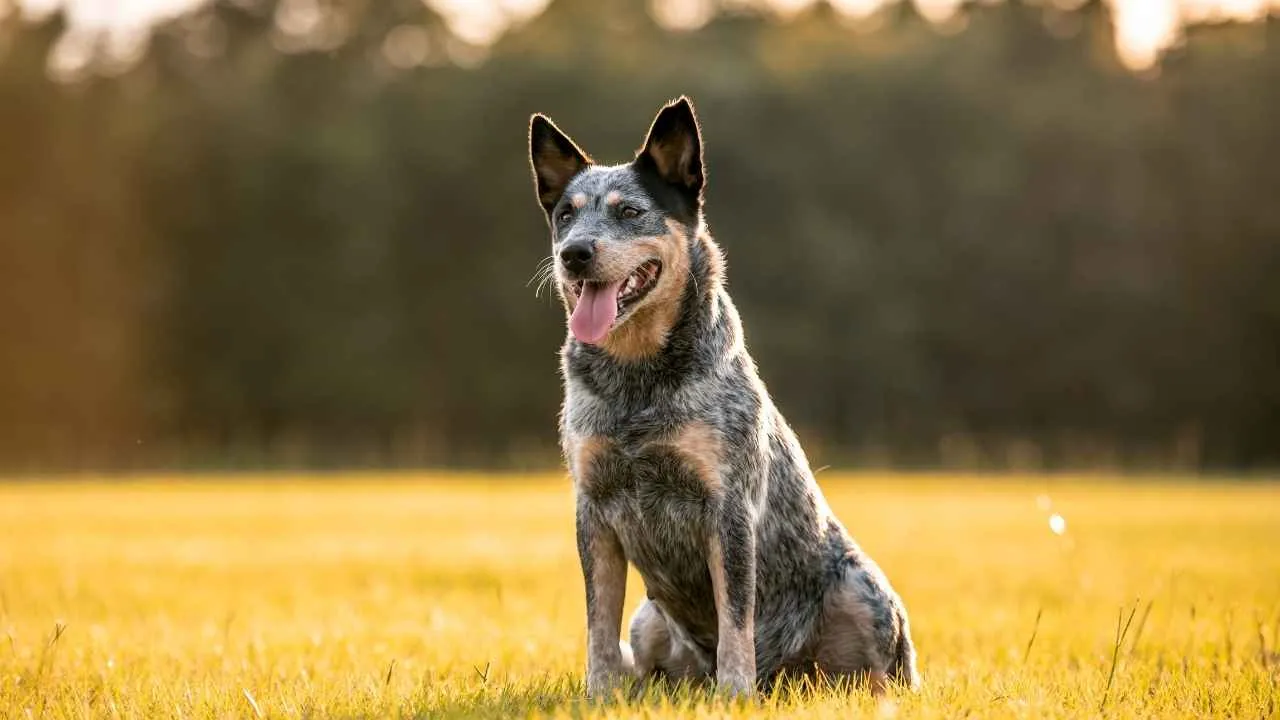
The Australian Cattle Dog, often called the “Blue Heeler” or “Red Heeler,” was developed in Australia in the 19th century for driving cattle across long distances. Their history reflects resilience, as they were bred to withstand harsh climates and demanding farm work. These dogs are well-suited to hot, arid regions where endurance is essential.
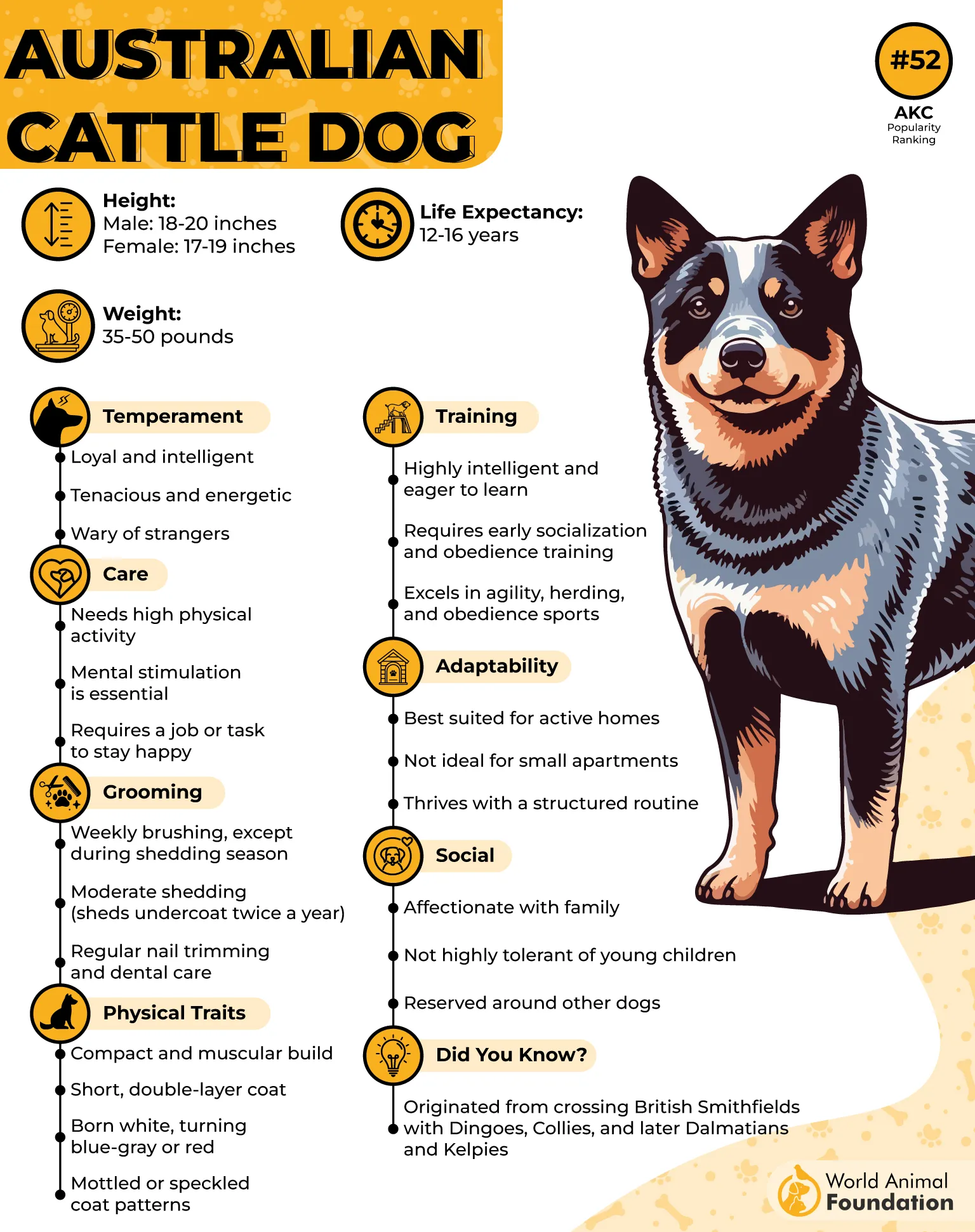
On farms, they are especially skilled at managing cattle, using their agility and nipping instincts to control stubborn livestock. Their compact yet muscular build allows them to maneuver quickly without tiring. Australian Cattle Dogs are known for their courage and tenacity in handling even the most headstrong animals.
Training this breed requires consistency, energy, and plenty of challenging activities. They respond well to structured commands and thrive on daily tasks that test both their intelligence and physical abilities. WebMD recommends that early training helps channel their high energy productively.
For farmers seeking a hardy, easy-to-train breed that thrives in tough conditions, the Australian Cattle Dog is a top choice.
Owners Insight
Grooming: Short coat; needs weekly brushing, occasional bath.
Diet: Lean protein to support muscle; avoid overweight shoulders.
Warning: Deafness risk with blue merle coloring; genetic screening helps.
5. Dutch Shepherd
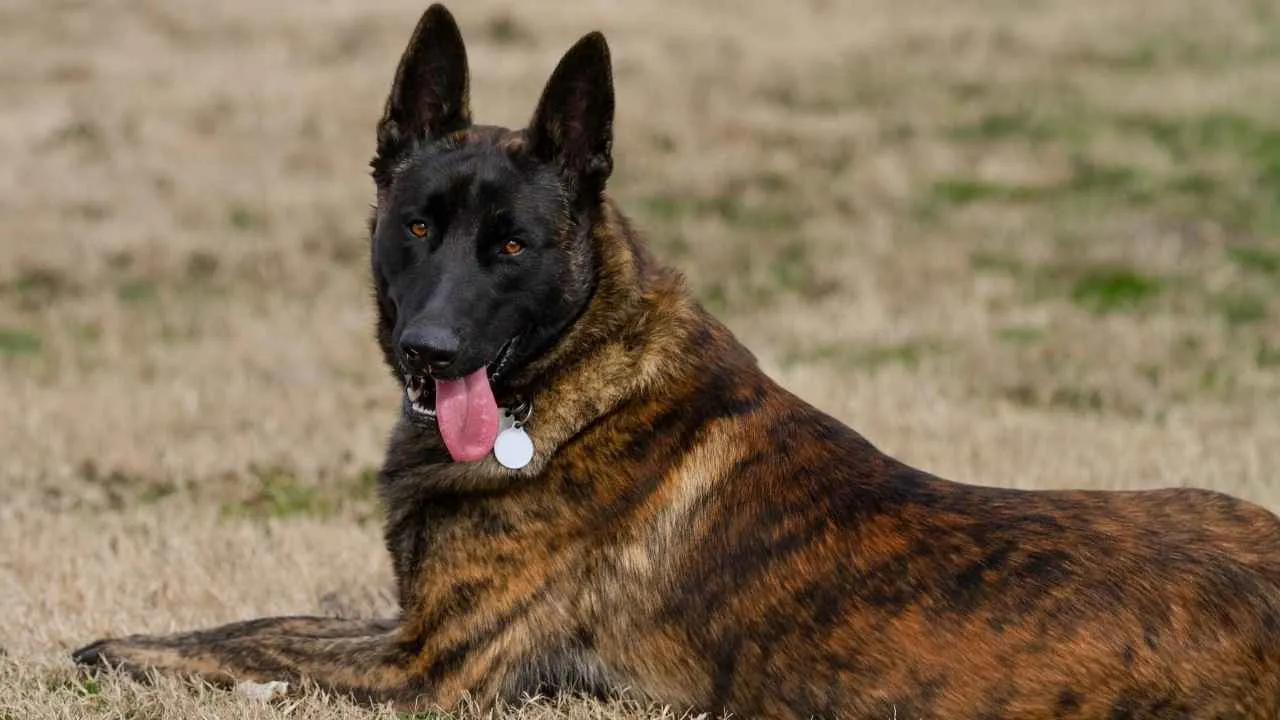
The Dutch Shepherd originated in the Netherlands during the 19th century, bred for versatile farm work, including herding, guarding, and pulling carts. Their history as all-purpose farm dogs makes them highly adaptable to diverse roles in rural settings. They perform best in temperate climates, though their resilience allows them to adjust to various conditions.
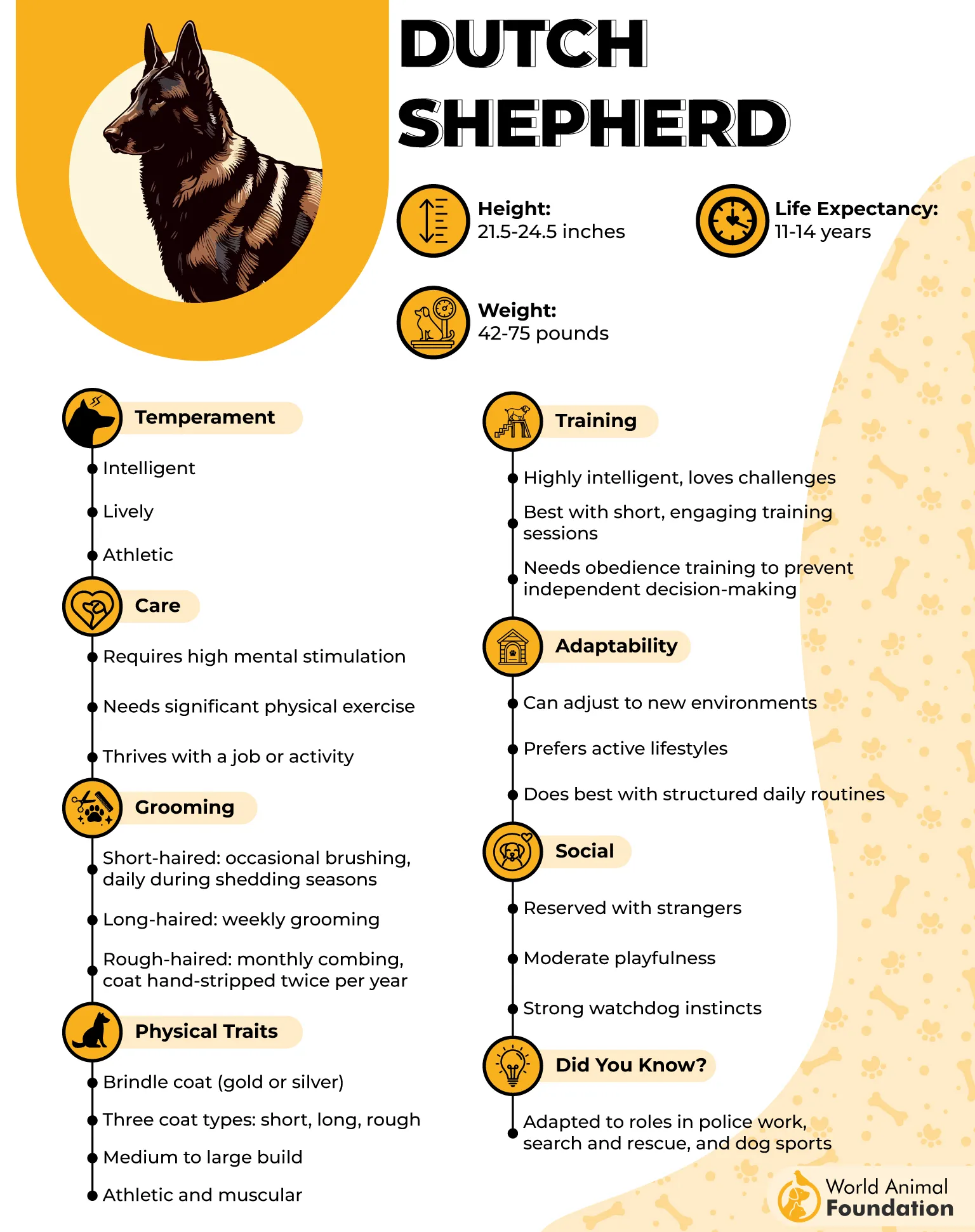
On farms, Dutch Shepherds excel in herding sheep and cattle while doubling as protective watchdogs. PetMD notes that their keen senses and natural guarding instincts make them reliable companions for securing livestock and property. They are strong yet agile, capable of covering large areas efficiently.
Training a Dutch Shepherd is rewarding due to their eagerness to learn and loyalty to their handler. Positive reinforcement and task-based activities, such as agility or obedience training, keep them engaged. They are quick thinkers who benefit from mental stimulation alongside physical work.
With their versatility, intelligence, and natural reliability, Dutch Shepherds remain one of the most dependable farm dog breeds to train and trust.
Owners Insight
Grooming: Minimal clipping; regular nail care is crucial for working feet.
Diet: Needs lean protein with moderate fat; watch water intake.
Warning: Prone to eye issues; yearly ophthalmologic exams advised.
6. Catahoula Leopard Dog
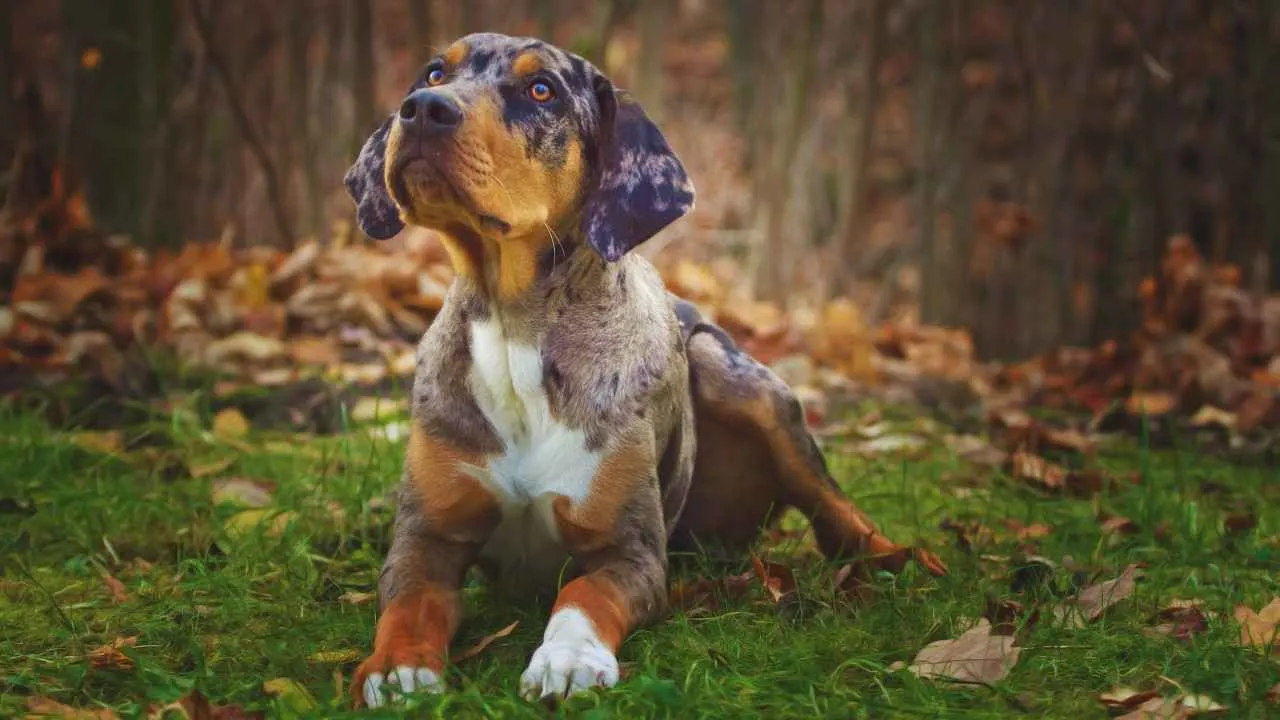
The Catahoula Leopard Dog, Louisiana’s state dog, has roots in early American history as a versatile hunting and herding companion. Originally bred to manage wild hogs and cattle in the southern United States, they are naturally suited to warmer climates and rugged terrain. Their adaptability makes them excellent all-around farm dogs.
This breed stands out for its independence and problem-solving abilities. On farms, Catahoulas excel at managing cattle and hogs, demonstrating bravery and control in high-pressure situations. Their striking coat patterns reflect their unique heritage and hardworking character.
AKC suggests that training a Catahoula requires patience, consistency, and firm guidance. They are intelligent but strong-willed, so early socialization and clear leadership are crucial. Giving them jobs to do, whether herding or guarding, ensures they remain focused and obedient.
Farmers who need a courageous, easy-to-train dog that thrives in demanding environments will find the Catahoula Leopard Dog a reliable working partner.
Owners Insight
Grooming: Shed heavily despite small stature; brush undercoat often.
Diet: Watch portions; predisposed to obesity.
Warning: Back problems are common; avoid jumping from heights.
7. Pembroke Welsh Corgi
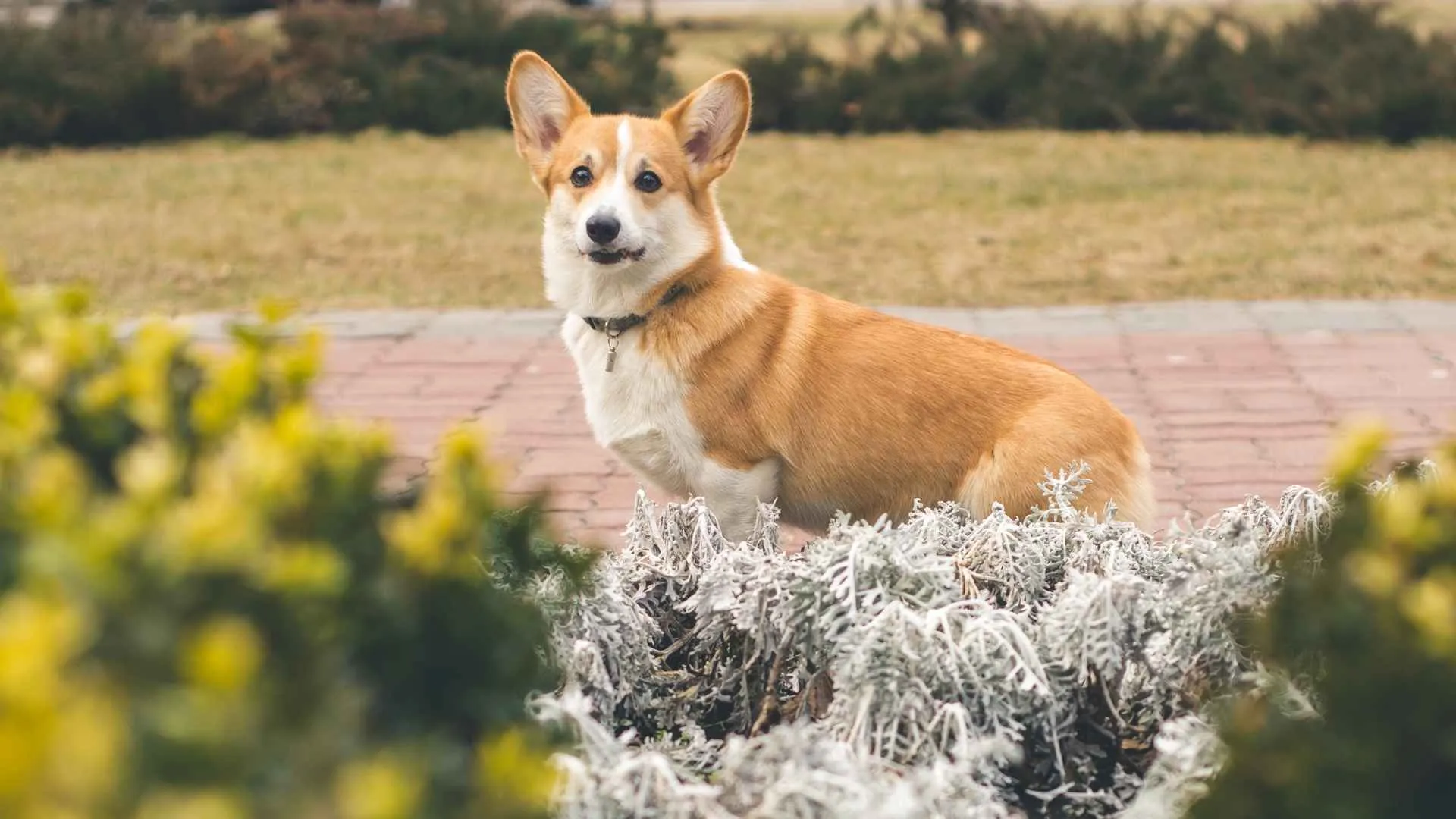
The Pembroke Welsh Corgi has a long history as a herding breed in Wales, originally used for driving cattle. Their short stature made them ideal for nipping at livestock’s heels while avoiding kicks. Adaptable to mild and cool climates, they are well-suited for smaller farms and close-contact work.
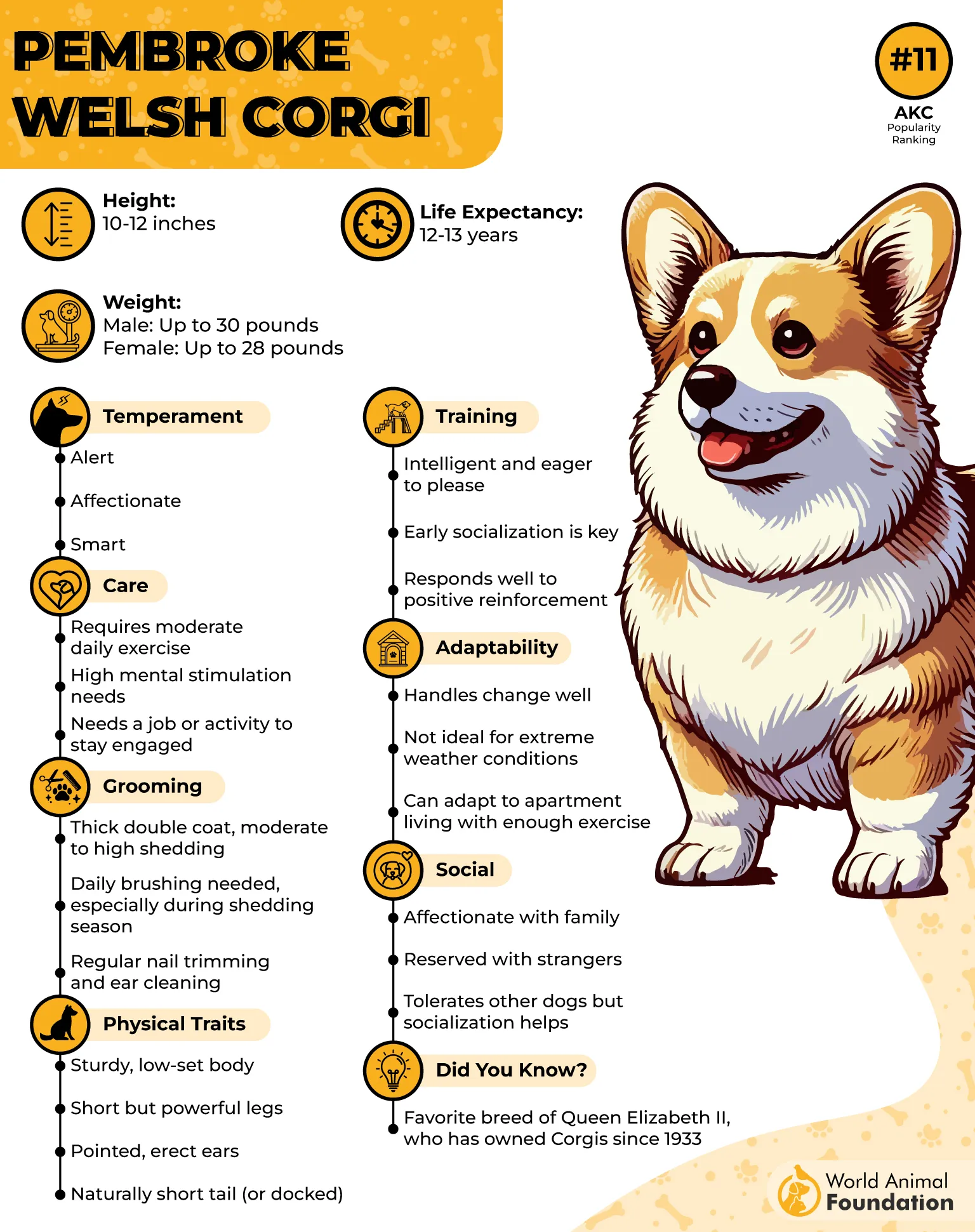
Despite their size, Corgis are energetic and intelligent, excelling with cattle and sometimes sheep. Their strong herding instinct, combined with alertness, makes them highly effective farm helpers. They are also known for being affectionate companions, making them a dual-purpose family and working dog.
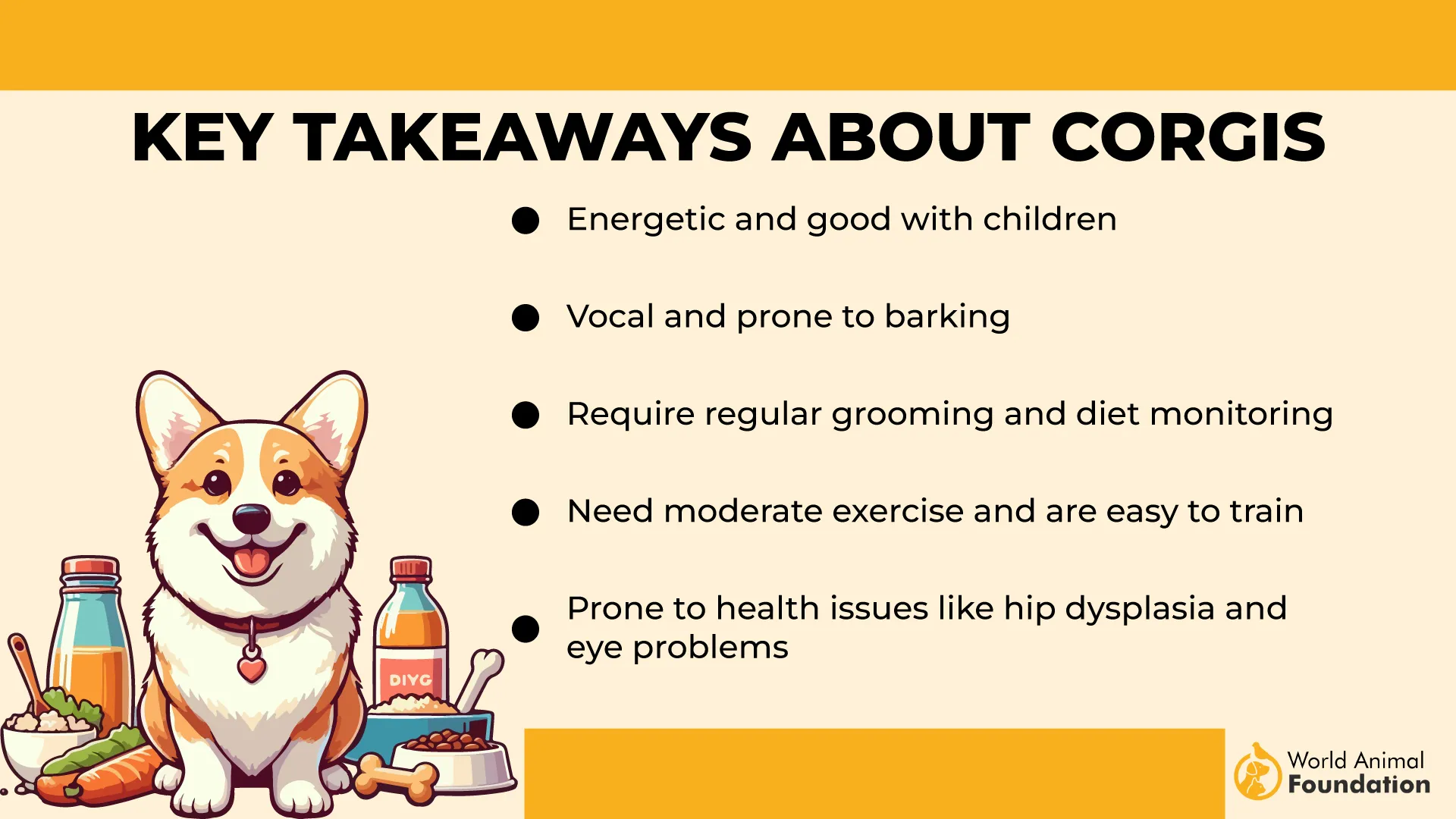
Training a Corgi is straightforward due to their eagerness to please and quick learning ability. They excel in structured training sessions that emphasize herding commands and obedience. Regular exercise and mental stimulation are essential to keep their energy channeled productively.
As one of the most charming yet hardworking farm dogs, the Pembroke Welsh Corgi proves that even small breeds can be reliable and easy to train.
Owners Insight
Grooming: Shed heavily despite small stature; brush undercoat often.
Diet: Watch portions; predisposed to obesity.
Warning: Back problems are common; avoid jumping from heights.
FAQs
Are these breeds suitable for both small and large farms? Yes, these working farm dogs adapt well to both small farms and large flocks. From a Pembroke Welsh Corgi to a Great Pyrenees dog, each breed has unique strengths for handling cows, chickens, or horses. Choosing the right fit depends on the farm size and tasks.
Can these breeds get along with other pets on the farm? Most herding and livestock guardian dog breeds can live peacefully with family pets and small animals. Proper training reduces aggression and helps them respect other livestock. Early socialization as a puppy is key.
How much daily training do these farm dogs really need?These dogs require consistent training to thrive. Even versatile breeds like blue merle or red merle types benefit from structured routines. Short, focused sessions build reliability and reduce common behavioral issues.
Conclusion
Herding dog breeds are not only reliable working farm dogs but also wonderful pets and loyal family members. From guarding livestock to herding cattle, these versatile dogs bring intelligence, protective instincts, and dedication to open spaces.
While breeds like the Bernese Mountain Dog, Great Pyrenees, Anatolian Shepherd, Belgian Sheepdog, Rat Terrier, Jack Russell Terrier, and Maremma Sheepdog were not covered here, many dogs with compact size or large flocks in mind remain excellent choices to protect livestock and other animals.
With proper training from a skilled dog trainer, extremely intelligent and very loyal dogs—whether herding, guarding, or even pest control helpers—become great choices for both humans and farms.
Explore these family dogs and discover which breed will best support your working farm and home life. Start today and find the right partner to protect, herd, and thrive alongside your animals.


